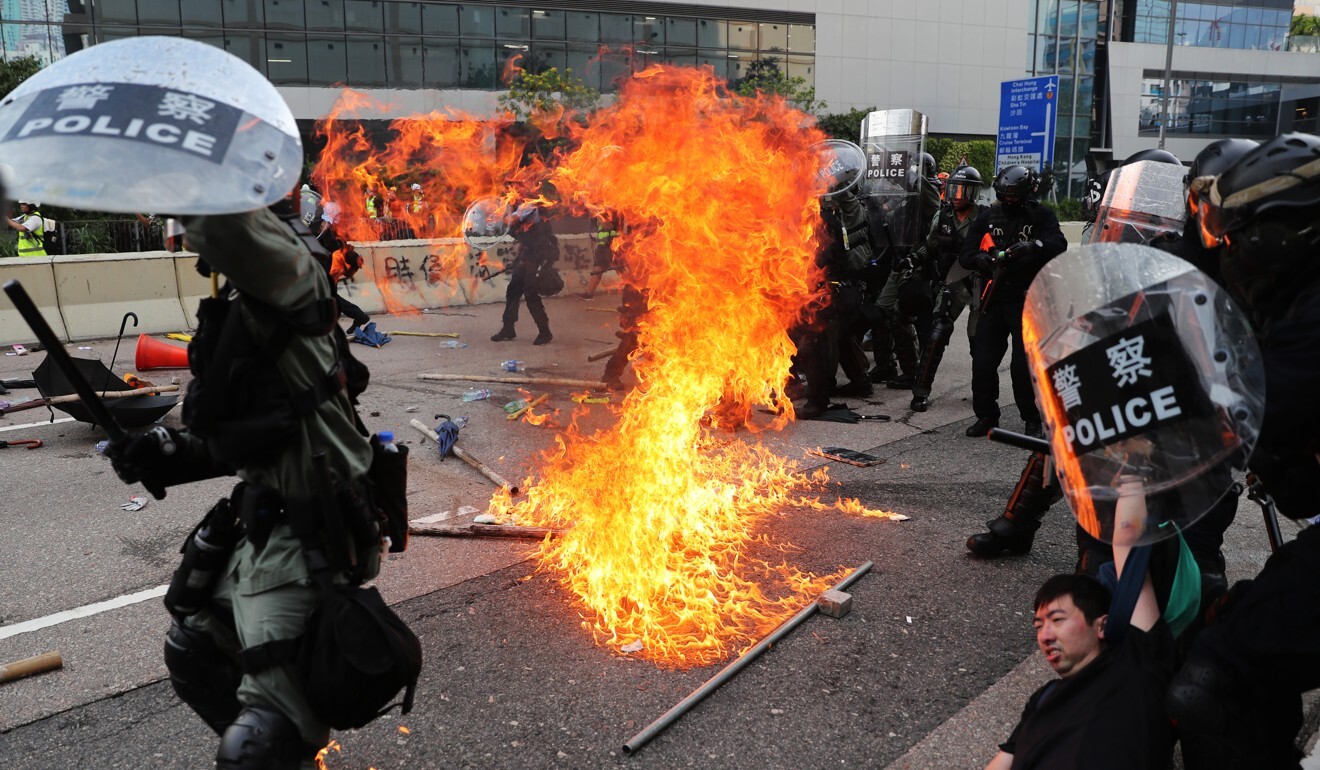
Hong Kong’s ranking in global law and order index plunges from fifth place to 82nd on the heels of last year’s unrest
- The index measures the public’s perceptions of personal security, and their faith in police
- The rankings are based on a survey conducted last autumn, at the height of the city’s anti-government protest movement
Hong Kong’s ranking in a new index of public perceptions of law and order has dropped dramatically, plunging far below mainland China’s, putting the city’s sense of security and faith in its police force on par with the likes of Burkina Faso.
The 2020 Global Law and Order Index, conducted by the US-based advisory and analytics firm Gallup, measured people’s level of confidence in their police and their perceptions of personal security in 144 countries and regions around the world, scoring each on a 100-point scale.
Hong Kong’s score this year was 76 – below the global average of 82 – putting it in 82nd place worldwide, tied with Burkina Faso and Nepal.
The ranking represents a precipitous drop from 2018 – the last year Hong Kong was included – when the city scored a 91 on the index, clocking in at a respectable fifth place globally.
Police reputation in tatters across the political divide, according to online survey
Singapore topped this year’s index, as it has every year since 2015, with a score of 97, tying with Turkmenistan. China, meanwhile, came in third, with a score of 95 – up from 91 the year before, and 88 in 2017. Xinjiang and Tibet, where the central government has been accused of major human rights abuses, were excluded from China‘s sample.
Hong Kong’s score was calculated based on telephone surveys conducted by the US polling firm between August and October of last year. The firm surveyed 1,004 Hongkongers aged 15 and above, and asked them about their confidence in the local police force, their level of safety walking alone at night and the prevalence of theft, assault and muggings over the past year.
Hong Kong’s plunge in the rankings was something of an outlier, with the Gallup report noting that scores for most of the countries and territories surveyed had remained within more or less the same range over the past few years.

Engaged in increasingly routine street battles in which extremists blocked roads, vandalised shops and at times threw bricks and petrol bombs, police fired 16,223 rounds of tear gas, 10,108 rubber bullets, 1,885 sponge grenades, 2,033 beanbag rounds and 19 live rounds of ammunition between June 2019 and May 2020.
A total of 8,981 people were arrested over that period for offences including rioting, common assault and arson, with politicians on both sides of the aisle on Thursday tracing the city’s dismal new ranking back to last year’s unrest.
Former Hong Kong security chief Regina Ip Lau Suk-yee, also an adviser on the city leader’s de facto cabinet, the Executive Council, said the results were to be expected amid an overall spike in crime.
“Last year, our law and order situation was highly adversely impacted by the violent crimes brought about by the unrest and protests,” she said. “There were more robberies and fraud as well, as the economy worsened. I hope that things will gradually improve this year.”
More Hongkongers seeking asylum overseas, with Australia and Canada top picks
Ip, who also serves as a pro-establishment lawmaker, pointed out that last year there were also a series of controversies involving law enforcement.
“Rightly or wrongly, the police were subject to a lot of complaints because they were at the front line. Scores of people, some said millions, took to the streets last year – some must be unhappy when officers were there to enforce the law,” she said.
But Hong Kong opposition lawmaker Lam Cheuk-ting, of the Democratic Party, blamed the worst of the unrest on government intransigence.
“The government kept ignoring the people’s opposition [to the extradition bill] and the police brutality worsened the situation,” Lam said, referring to widespread accusations that police had used excessive force in dealing with protesters.
“I don’t think Hong Kong is as safe as before, because the police force sides with the pro-establishment camp, leading to many cases of them using violence without any consequences,” he added.
Additional reporting by Tony Cheung

